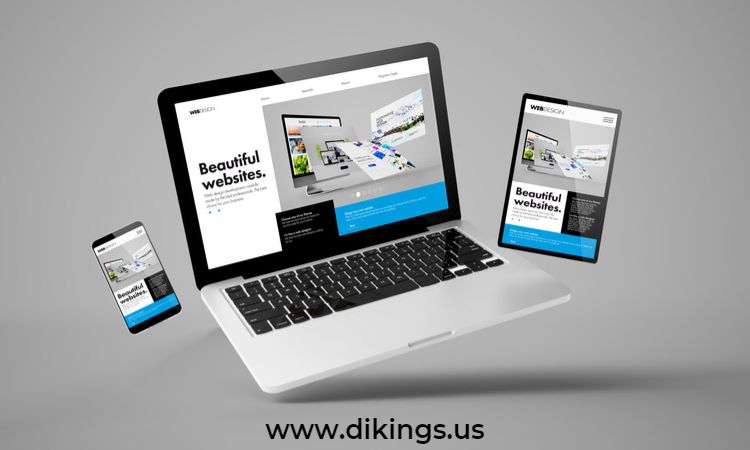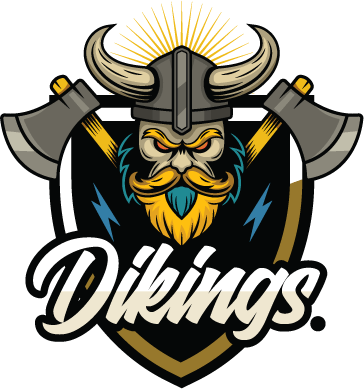In today’s world, where social and online presence is the crux of a successful business, almost everyone looks for a website development service. It is because an official website has more reach and potential to attract global clients.
Table of Contents
ToggleHowever, knowing how to create a website is essential to make any business or brand appear online. See, there are several kinds of best CMS for SEO, aka content management systems. Some of them are typically considered the best CMS for business websites.
We understand that the decision can be overwhelming with many options, such as WordPress, Drupal, and Joomla. Let us tell you that the CMS is your website’s pillar, providing essential tools to manage and update content easily. A suitable CMS is necessary for optimal performance, user experience, and scalability. Let’s check what is covered in this blog.
1. What is a Content Management System (CMS)?
A management system is an application to create, manage, and publish content on websites without technical knowledge. It provides an easy-to-use interface for tasks like building and editing web pages and organizing web content.
We also determine CMS as a system that allows content collaboration, simplified website maintenance, and a centralized platform to manage your content.
Following are some areas that you should know about CMS.
1.1. Components and Architecture of CMS:
A CMS comprises several vital components and follows a specific architecture. It typically consists of a database to store content. Also, a user interface to manage the content, a template system for the website’s design, and an administrative panel for configuration. The architecture follows a modular approach, allowing users to increase functionality through different plugins.
1.2. Benefits of Using a CMS:
It provides several benefits to individuals and organizations. It helps non-technical users to create and update content without relying on web developers. CMSs offer themes and templates to customize them according to your business branding. They increase content management efficiency by providing tools like built-in SEO features, content scheduling, and version control. Moreover, CMSs allow multiple users to collaborate on content creation, making them ideal for large teams.
1.3. Types of Content Managed by CMS:
CMSs can handle different types of content like text, images, video files, audio files, and documents. They allow users to create and manage pages, blog posts, product descriptions, news articles, and more. Some advanced management systems even support e-commerce capabilities—for example, managing product catalogs, shopping carts, and online transactions.
1.4. Key Features and Functionality of CMS:
CMSs have many functions and features to streamline content management. You can categorize and tag content, creating a well-organized structure. They also manage workflow, enabling the range to undergo review and approval processes. User management features allow administrators to control user access and permission, so you have your content secured. They facilitate content scheduling, search functionality, and integration with third-party tools and services to increase productivity. Choosing a suitable CMS for SEO is crucial.
2. How Can a Content Management System Help My Business?
A content management system can significantly benefit your business. For example, Shopify is the best e-commerce CMS for small businesses. They provide different management features to control all your content needs in one place so you can grow your business smoothly. Likewise, we have WordPress, the most used CMS for all types of blogs and official sites. The main advantages of choosing a good CMS for your business are below.
Consistent Branding and Design:
A CMS maintains consistent branding design across your business website. It allows you to create themes and styles that define the visual elements, such as colors, fonts, and layouts. Implementing these themes on your website pages makes their appearance cohesive and professional.
Scalability and Flexibility for Business Growth:
A content management system offers flexibility to manage your business growth. As your website and content requirement grow CMSs allow you to easily add pages and functions without having any coding skills. CMSs often have support for plugins and extensions to extend the functionality of your website. This flexibility ensures that your CMS can adapt to your evolving business needs and the best CMS SEO.
Analytics and Insights for Data-Driven Decision Making:
CMSs provide analytics and insights that help you create better content strategies. They integrate with different web analytics platforms, allowing you to track and analyze website traffic, user behavior, and engagement. With the help of insights provided by analytics tools, you can refine your website content, identify opportunities to improve, and make decisions to enhance the performance and effectiveness of your website.
Enhanced SEO and Content Optimization:
CMSs offer built-in features and plugins to level up search engine optimization (SEO) and content optimization game to work as best CMS SEO. They help optimize metadata, including title tags, meta descriptions, and keywords which will improve your website’s ranking in search engine results. They offer features for content analysis, keyword research, and SEO tools, assisting you in optimizing your content to increase organic traffic. The best CMS for SEO features and tools can significantly impact your website’s online presence and overall performance.
Efficient Content Organization and Structure:
A CMS provides tools and features to improve content organization and structuring. It helps you create categories and tags, making organizing content based on different topics easier. This organizational structure enhances the user experience on your website, allowing visitors to find relevant content quickly.
3. What Should I Contemplate When Choosing a CMS Platform?
Consider the following prime factors when selecting a CMS platform for your business.
Assessing Your Business Needs and Goals:
When choosing a CMS platform, figuring out your business goals is essential. Check factors such as the type and amount of content you’ll manage, your target audience, and specific features required for your website. Understanding your goals, whether increasing sales or improving customer engagement, will help you select the best suitable CMS according to your business objectives. Shopify is the best e-commerce CMS for small businesses.
Identifying Required Features and Functionality:
List essential features you need from a CMS. Look at content creation and editing capabilities, media management, SEO tools, e-commerce integration, multi-language support, and user management. When your website need optimization for search engines, choosing the best CMS for SEO is crucial for achieving higher visibility and organic reach.
Security and Data Protection Measures:
When selecting a CMS platform, security is critical. Assessing the security features and data protection measures the CMS provides is essential. Look for features like user authentication, role-based access control, SSL support, and regular software updates. Only a secure CMS can protect your website, content, and user data from data breaches.
Customization and Extensibility Options:
Check out the CMS platform’s customization and extensibility features. Find out whether it allows you to customize the design to match your specific branding. CMS should support the integration of additional tools and plugins to increase its functionality. For example, Shopify is the best CMS e-commerce available.
4. Web Development Services Offered at Digital Vikings
Sometimes we are not the right ones to decide the best CMS for our business. That is where you are bound to hire a professional web development agency. Many agencies work on very bogus and so-not-cool themes. But when you hire us, Digital Vikings, certain features are experienced while completing your website.
What do we offer at the best website development agency in the US? Let’s check it out.
Responsiveness of Themes in Websites:
Our expert team members created, designed, and developed websites with responsive themes. It means all you see in different gadgets (laptops, smartphones, tablets, etc.) are the same – they don’t go out of place and have the same layout.
Best CMS for SEO:
The content management system integrated by our professionals and experts is based on the type of blog or website you need. If there is a need for an online store for e-commerce purposes, we opt for Shopify and Magento. But when a service model business wants us to develop and design a website, WordPress is our choice. We choose the best CMS for business websites, e-commerce, and other needs.
Most Accessible Navigation:
According to experts, WordPress offers the most uncomplicated navigation within its CMS. It takes care of content management quite differently than our other options – Wix, Drupal, etc.
Actionable CTA:
Call to action is the golden ticket of a website. If it is rightly placed or stationed, the essentiality of their presence remains strong. That’s why using a CMS that offers the best actions is necessary. We integrate CTAs for the best CMS SEO.
Constant Optimization:
Constant optimization is always addressed at Digital Vikings. It means even after completing the tasks and projects. We extend a helping hand to maintain security and check the website.
5.List of Famous CMS Platforms
Here are the most used CMS platforms and their use cases.
WordPress
More than 43.2% of websites on the internet use WordPress, making it the most famous CMS platform. It’s an open-source software known for its massive library of over 58000 plugins, which allow users to create featureful websites according to their needs.
WordPress is for everyone, from those who want to start their blog to those who want a multi-functional website. Many famous companies like BBC America, The Walt Disney Company, and Sony Music use WordPress.
WordPress is full of features like you can assign different roles among your team members. You can manage media files to improve your SEO. It’s the best CMS for small businesses.
Pros:
- WordPress is a perfect blend of affordability and customization, depending on your desired features.
- Many great free themes and plugins are available in the gallery to customize your website. It is also the best CMS for business websites.
Cons:
- The quality and reliability are not top-notch in most of the WordPress plugins
- It lacks customer support, so you must rely on different tutorials and forums for help.
Joomla
Joomla is also open-source software that covers more than 2% of websites operated globally. Compared to other CMSs, Joomla provides some extra features like multilingual support. But setting up Joomla for some users with zero technical background can take time and effort. Joomla is an excellent option for websites managed by the team. It is the best CMS for a business website. And one of the best PHP CMS.
Pros:
- It can easily manage larger websites with many pages and subpages.
- You can use 2- factor verification to tighten up your security.
Cons:
- It has a more complex web development environment, which may not be suitable for beginners.
- Its plugins and extensions are not so compatible with each other.
Drupal
If you want higher web traffic than your competitors, you can choose Drupal. It is programmed for professional web developers because it is compatible with different digital platforms and has many features for smooth performance and security.
It’s a great CMS platform for users who have a coding background to manage large professional websites. It is one of the best PHP CMS.
Pros:
- They regularly update security features so it is more secure than other CMS platforms.
- Many built-in features increase the functions of your website.
Cons:
- You must know coding languages like PHP, CSS, HTML
- It’s a time-consuming process if you want to upgrade your Drupal.
Hubspot CMS
If you are into sales and marketing with no prior technical knowledge in website building, then this CMS platform has your back. You can easily create user-friendly business websites, and it doesn’t require you to upgrade your websites constantly. That’s why it’s the best CMS for e-commerce.
Pros:
- You can increase engagement by utilizing social media management tools and email marketing tools.
- Its security is monitored 24/7 by professional teams to secure your site from viruses.
Cons:
- You get minimal options for customization with themes and plugins.
- Hubspot lacks personal support when you need help.
Magento
Are you looking for the best CMS platform for your e-commerce store? Then Magento is here to cater to all your online business needs. This platform mainly focuses on customizing e-commerce stores, security features, and SEO. Many big platforms use this CMS as it has the power to tackle a large number of orders and products.
It is designed to manage medium to large online business stores. It has all the essential options you may need for e-commerce, like secure payment methods and inventory management systems.
Pros:
- You can manage different online stores in various locations from one place with languages.
- Easy to manage content with mobile devices as well.
Cons:
- Setup is quite complicated at the initial stages.
- Product listing and customization of themes is a time taking process.
WooCommerce:
It is undoubtedly the most popular among all e-commerce platforms in the world. It is beginner friendly and straightforward to use. It works as a WordPress plugin because, technically, it’s not a CSM platform. To use it, you must have a WordPress website. If it were a CSM platform, it would cover 5.8% of global websites already using it.
Pros:
- It’s free, but you may buy a WooCommerce domain and hosting.
- WooCommerce has a separate gallery of themes to make your website appealing and increase its functionality.
Cons:
- It may be baffling for some users to set up a store in it due to the many options.
- It works only with WordPress, but you can’t use its themes. You have to choose one of the WooCommerce themes only.
Wix
Wix is a popular CMS platform but with certain limitations. Most of the time, users switch from Wix to WordPress because it’s better. But Wix is more friendly with beginners so that one can consider it. They also have a free plan to start with.
Pros:
- Wix has a drag-and-drop feature lets you quickly increase your website functionality by editing any part of your page.
- They have an app store from which you can pick different apps for your websites. These apps work the same as WordPress plugins.
Cons:
- Once you have selected a theme, you can’t change it again. You have to work on it, whether it’s good or bad,
- If you are on their free plan, you will have a subdomain of Wix. And they will also display ads, which will make money for Wix.
Contentful
Contentful works in a different way as compared to other CMS. Its content is not attached to a web page. You need deep technical knowledge to work on it as it is based on an Application programming interface (API). It’s valid only for developers to create custom websites for organizations and individuals.
Pros:
- It can adapt to all digital platforms like mobile apps and web browsers.
- It works perfectly with different types of content.
Cons:
- It has more features for the back end than the front end, layouts, and designs.
- You need technical knowledge to create content for different platforms.
Takeaways: Which is the Best Website CMS for Small Businesses?
Selecting the best Management System for your business is an important decision that can significantly affect your online presence. Throughout this article, we have explored the world of CMS platforms, highlighting their features, benefits, and limitations.
We have discussed essential factors, such as SEO-friendliness, user-friendliness, customization options, security, etc. Stay ahead in the digital landscape by harnessing the power of the best CMS for SEO.
Whether you opt for popular platforms like WordPress, Drupal, or Joomla or choose a niche CMS solution, it is crucial to prioritize scalability, flexibility, and ease of content management.



